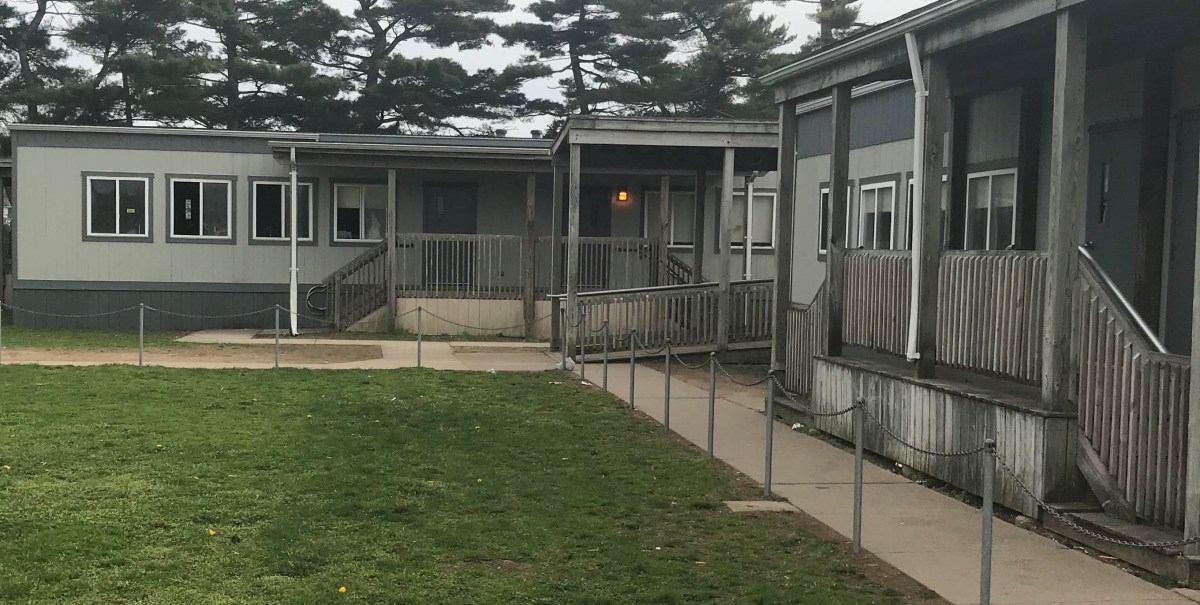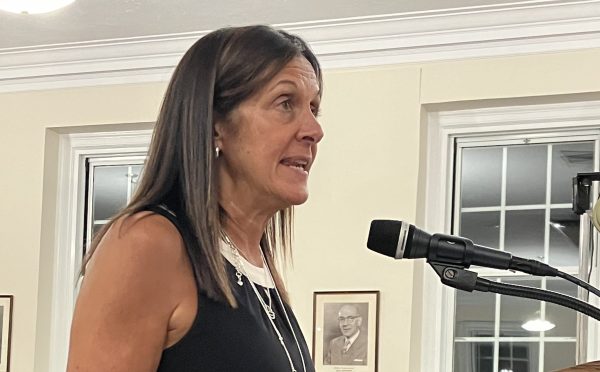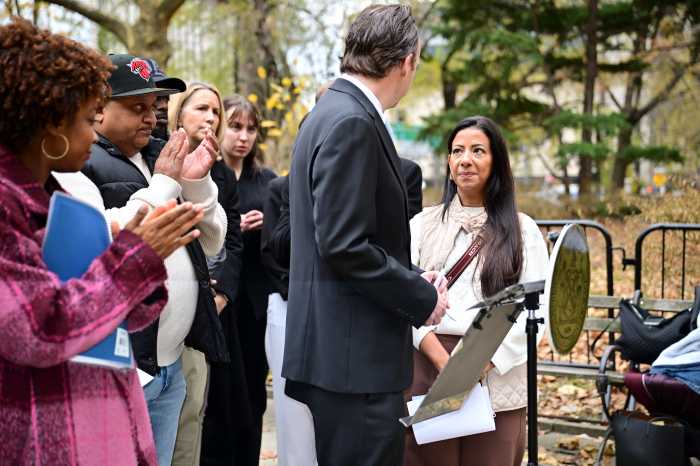The low-performing Hempstead School District is banking on one chance to finally get hundreds of its elementary school students out of “temporary” trailers they’ve been in for more than 20 years, and into real classrooms. But it will mean that homeowners must agree to pay between $80-$239 more in property taxes annually for a few years.
Approval by voters of a $46.8 million bond on May 15 would allow the district to begin a three-year capital project to demolish and replace the shuttered Marguerite G. Rhodes Elementary School. The project would open up real classrooms to between 700 and 750 students in the 2021 school year – eliminating about half the 55 portable classrooms and easing some of the overcrowded conditions in the three existing elementary schools, district officials said.
Acting School Superintendent Regina Armstrong calls the approval of the bond “essential” to changing the educational atmosphere for children in a district that last year graduated about 36.7 percent of its senior class.
“It’s not the learning environment the school district is okay with,” Armstrong says through a district spokeswoman. “We want to provide the most optimal learning environment for our students … the bond is essential to our getting the children out of the portable classrooms that were never intended to be here this long. It’s also crucial to helping alleviate the overcrowding (in the other elementary schools) and to stop the eyesore in the village.”
The school district owns about half the trailers that provide the classrooms for up to 1,600 Hempstead elementary students, Armstrong says. The other portable units are leased by the district at a cost of $1.5 million a year.
The district’s enrollment of 7,577 in the 2017-18 school year is expected to increase dramatically by 1,520 students to a total of 9,097 students in 2025. The growth is due to an influx of immigrants, officials say. Hempstead School officials expect about $28.7 million in state aid toward the $46.8 million Rhodes School capital project – $1.4 million
of which will go toward getting rid of half the modular units. That would leave a taxpayer-funded balance of $16 million, meaning a 1.59 percent increase to homeowners per year.
The district’s campaign for passage of the bond vote is: “A successful May 2018 vote means a September 2021 occupancy.”
Armstrong says that to have a better chance of the bond vote passing, her goal was to keep the property tax levy low for the proposed 2018-19 school budget. The proposed $215 million budget for the upcoming year carries a zero-percent increase for taxpayers. The budget, bond and two of the school board seats will all be voted on, on the same ballot on May 15.
The modular classrooms date back to an even more troubling time in the district’s history. In 2005, a New York State Comptroller’s audit found that Hempstead School District spent $2.3 million to install and rent portable classrooms. This was part of $5.1 million in spending between 2002 and 2004 that the audit called “careless.” Other findings of the audit included about $1.3 million in contracts awarded without competitive bids and about $1.1 million paid to temporary employment agencies without proper approvals and without analysis of the cost-effectiveness.
This, auditors said, when “school buildings were falling apart, classrooms were overcrowded, and students were being housed in inadequate, temporary classroom space.”
At that time, voters had defeated the last two budgets and a proposed $177 million bond issue to rebuild several of the deteriorating schools. The approval of that would have permitted the district to build new school buildings, repair and renovate others, and eliminate the need for portable classrooms.
Asked what will happen if the bond vote doesn’t pass on May 15, Armstrong says simply, “the children will continue to be educated in trailers.”
The state Department of Education declined to comment for this story.































